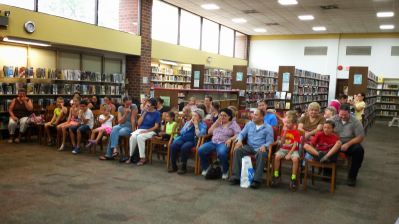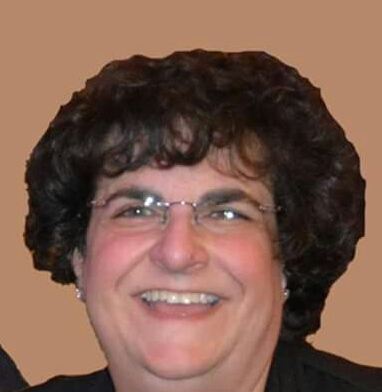Empowering Learning Through Leadership: Communication
Update December 2020:
This web page is a companion to the 2016 version of the School Library Program Rubric. NYSED released an updated School Library Program Rubric in December 2020.
Student Snapshot: Impact on student achievement of library media program policies and services on student achievement is communicated throughout the school community.
The Toolkit for Promoting School Library Programs (2014) states “When it comes to getting your message across, how you share information can be as important as what you say. Even the best advocacy plan still requires a vision for marketing and communicating your ideas to the people who need to hear them. In marketing, delivering the right programs and services is as important as communicating about them. Listening to your user community is critical, and their wants are as important as their needs as they perceive them. Developing a marketing plan is an essential step in getting the word out about your school library program. This plan should support the overall mission and goals of your program, contain both one-way communications and engagement strategies, and be tailored to the audience you serve. Additionally, your plan should be reviewed and updated regularly. Most importantly, it should be practical and doable.”
Source: Toolkit for School Library Programs Revision Task Force. "Toolkit for Promoting School Library Programs." American Association of School Librarians, 2014.
Citation for Photo: Creative Commons - Franklin Park Library, June 26, 2014.
In Practice
Thing 32: Evidence Based Practice-Collecting Data
Description: Readers will examine Evidence Based Practice (EBR) and focus on collecting information and data.
Resource/Citation: Farrington, Polly. “Thing 32: Evidence Based Practice-Collecting Data”. Cool Tools for School, 5 February 2016.
Reaching Out: Including Parents in Your Program throughout the Year
Description: In this blog post, Joann Absi reminds librarians of the importance of parent outreach and provides examples from her own library. She suggests ways to keep in touch with parents even after the back-to-school welcome events have ended.
Resource/Citation: Absi, Joann. "Reaching Out: Including Parents in Your Program throughout the Year." Knowledge Quest Blog, 5 Jan. 2016.
P21 Framework Definitions
Description: “To help practitioners integrate skills into the teaching of core academic subjects, the Partnership has developed a unified, collective vision for learning known as the Framework for 21st Century Learning. This Framework describes the skills, knowledge and expertise students must master to succeed in work and life; it is a blend of content knowledge, specific skills, expertise and literacies.” On page 4, detailed skills for communication and collaboration are explained.
Resource/Citation: Partnership for 21st Century Skills. “P21 Framework Definitions”. December 2009.
Curation in School Libraries
Description: School librarians using digital tools to curate and share resources “ensure that their investment in e-books, databases, and homegrown instructional content is scaled, embedded, and discoverable whenever students need it.” School librarians communicate how digital curation supports learning, serves as a learning activity for students, and contributes to the larger community.
Resource/Citation: Valenza, Joyce Kasman, Brenda L. Boyer, and Della Curtis. "Chapter 4: Curation In School Libraries." Library Technology Reports, vol. 50, no. 7, 2014, pp. 27-35.
In Theory
Toolkit for School Library Programs
Description: Listening to your user community is critical, and their wants are as important as their needs as they perceive them. Developing a marketing plan is an essential step in getting the word out about your school library program. This planning guide provides helpful tips for communicating with relevant stakeholders.
Resource/Citation: American Association of School Librarians. “Toolkit for Promoting School Library Programs.” American Association of School Librarians.
Leading Learning
Description: In the Canadian document "Leading Learning: Standards of Practice for School Library Learning Commons in Canada" released by the Canadian Library Association in June 2014, topics discussed include the aim of the document to foster teaching partnerships and build a community of learners, how to use the transformational document, and the significance of professional learning.
Resource/Citation: Canadian Library Association. “Leading Learning: Standards of Practice for School Library Learning Commons in Canada”. Canadian Library Association, 2014.
Digital Advocacy Stories: A Pedagogical Tool for Communicating and Strengthening Library Values
Description: The purpose of this study was to investigate graduate student candidates' development of library values through the use of digital tools to create and disseminate advocacy stories. While discussing, creating, sharing, revising, and reflecting on digital advocacy stories, candidates gave voice to values based on ALA and other competencies. They also increased their expertise in communicating those values to library stakeholders via electronic and Web 2.0 tools.
Resource/Citation: Moreillon, Judi and Ruth Nicole Hall. "Digital Advocacy Stories: A Pedagogical Tool For Communicating And Strengthening Library Values." Journal Of Education For Library & Information Science, vol. 55, no. 2, 2014, pp. 100-111.
New York State Regulations: §90.18 School Library Systems
Description: This statute provides definitions for aspects of library planning and outlines the current policies in place by New York State.
Resource/Citation: “NYCRR Title 8 - Education: §90.18 School library systems,” New York State Education Department, 2009.
Consultant
Name: Beth A. Davis
Email: bdavis@bkwcsd.k12.ny.us
Bio: After receiving her B.A. in Social Studies/Teacher Education from the University at Albany, Mrs. Davis went on to earn her M.L.S from the same institution in 1992. She has been the 7th-12th grade Librarian at Berne-Knox-Westerlo CSD for twenty years.
Mrs. Davis is a member of the New York Library Association Section of School Librarians Executive Board, representing Region IV of New York State.
*To access restricted database articles speak with your school librarian or public librarian.







